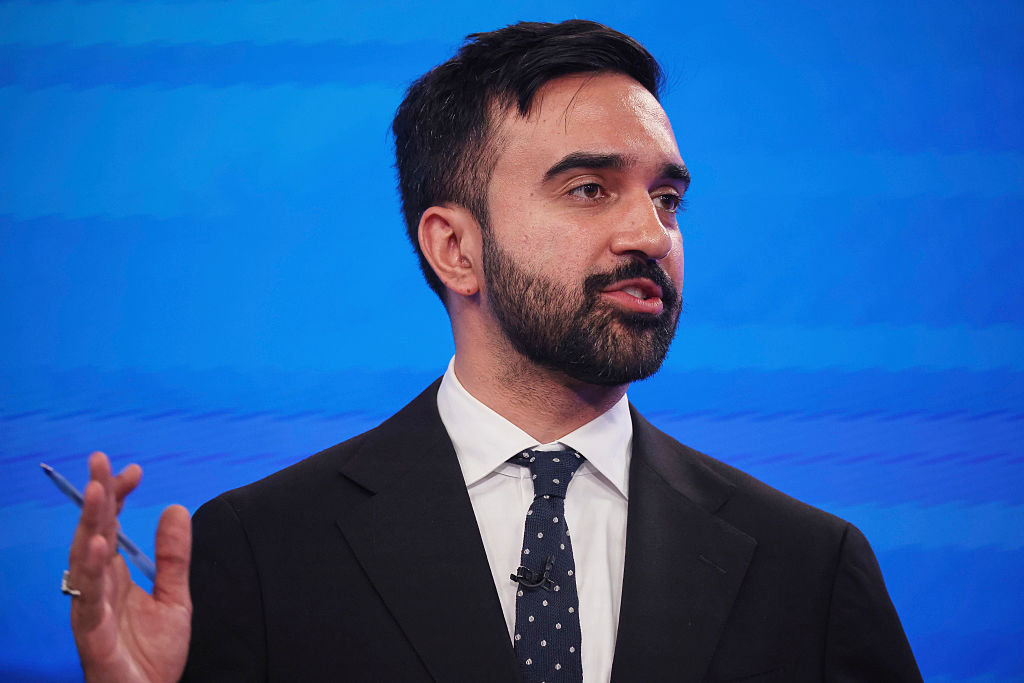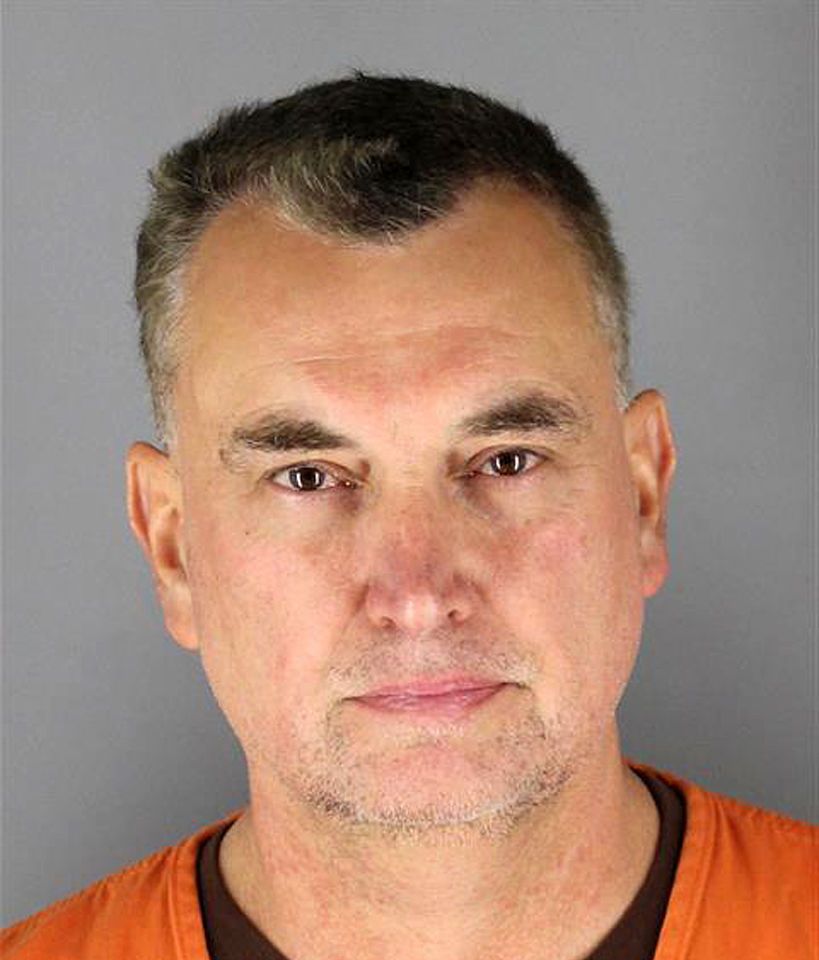The One Story: Black Police Chiefs Must Balance Between Black, Blue
The One Story: Balancing Loyalty Between Black And Blue
In the very early stages following then-Dallas Police Officer Amber Guyger shooting and killing her neighbor Botham Jean in his own apartment last year, the general sense was that the Blue Wall of Silence was working fast to protect one of its own.
That feeling was exacerbated by the delay in arresting the admitted shooter whose excuse — that the police officer who had been awarded for being observant mistook Jean’s apartment for her own — seemed flimsy at best.
As protests grew along with community outrage, Guyger, a white woman, remained on the Dallas Police Department’s payroll for weeks, avoiding being fired immediately for the reckless killing of an innocent Black man.
When Dallas Police Chief Renee Hall finally broke her silence and addressed the tragedy in public, her words rang hollow, if not unbelievable, when she told reporters that she was forbidden from firing Guyger.
“I can’t do that because there are both local, state and federal laws that prohibit me from taking action,” Hall, who is Black, said two weeks after Guyger killed Jean. “There are civil service laws we have to adhere to.”
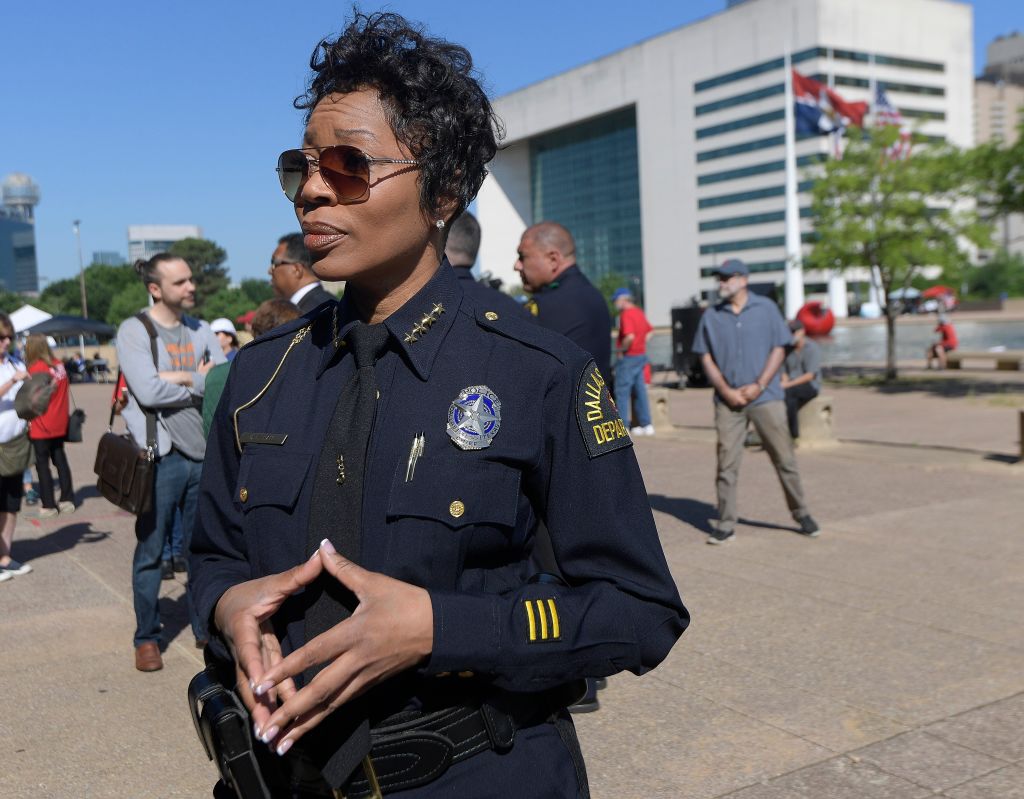
Pictured: Dallas Police Chief Renee Hall | Source: Fort Worth Star-Telegram / Getty
That, of course, was not true. Hall easily could have fired Guyger the same night the officer took Jean’s life. Many people took Hall’s words as an open defense of Guyger, who clearly had no regard for those same civil service laws that Hall seemed to be hiding behind instead of taking strong, swift action of terminating a rogue, trigger-happy officer.
Hall’s comments quickly made her a villain. And because of them, regardless of her intentions, that villainous role was one the community assigned to her while she was at the center of a high-profile police shooting with major racial implications.
As they say, misery loves company, and Hall is far from alone. She is one in an apparent proliferation of Black police chiefs in major and smaller cities across the country who have found themselves at the center of controversial incidents that many times prompt claims of racist policing by what typically turns out to be a white offending officer. Those seemingly nonstop situations, especially the shootings of unarmed Black people, routinely place African American police leaders in the unenviable positions of having to balance allegiances between the communities they are supposed to be protecting and serving and the officers who patrol them.
It’s a conundrum of loyalties that can’t be ignored and can weigh heavy on the minds of Black police chiefs, former Rochester Police Chief Cedric Alexander, an African American told NewsOne.
“We understand the complexity and history of policing in America,” Alexander, who also served as police chief in Georgia’s DeKalb County, said about Black police chiefs presiding over what many times are disproportionately white police departments.
“You do have a place where you stand as a Black man or Black woman police chief and wrestle with the history and reality of racism,” added Alexander. “At the same time, we must stand by the cops if they’re doing things right.”
But then, of course, that prompts the question: What is “right”?
There is no official database to keep track of the racial demographics of police leadership around the country, but Black police chiefs are and have been at the center of some of the most hot-button cases in recent history. And while sometimes the common denominators of those cases seem to be white police officers shooting unarmed Black people, that’s not always the case.
Back in April of last year, Philadelphia police officers arrested two Black men in a Starbucks store after a barista racially profiled them and called the cops. While consumers plotted a boycott of the companies coffee shops, Philadelphia Police Chief Richard Ross took a different tack and said the arresting officers, two white men, “did absolutely nothing wrong.” It was an unpopular decision that did not help police relations in the city’s Black community. But still, it was one that Ross apparently felt compelled to make regardless of the optics of a Black man defending white cops for arresting nonviolent Black men who were only guilty of waiting for a business partner to arrive for a meeting.
In fact, Ross even went so far as to suggest that some of the blame belongs to citizens who call the police for help.
“We can agree that biases, whether implicit or explicit, may distort the fears and perception of some citizens who call the police to report crimes,” Ross said at the time in an apparent reference to the spate of white people who call cops on Black people simply for living their lives.
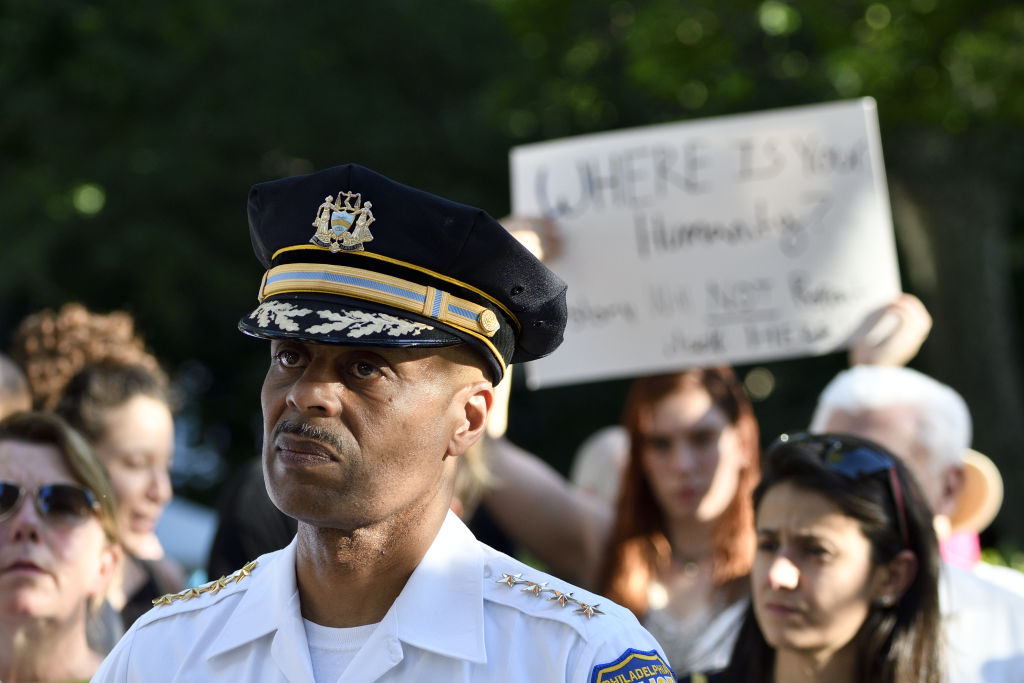
Pictured: Philadelphia Police Commissioner Richard Ross | Source: NurPhoto / Getty
In Sacramento, where police officers gunned down Stephon Clark last year, purportedly mistaking his cellphone for a gun, Police Chief Daniel Hahn, the first Black police chief in the city’s nearly 170-year history, went a little deeper when discussing the intersection of race and policing.
“Diversity is important and valuable, but it can’t be separated from the police culture, from the way we view what our job is, the way we view the community and the way we are viewed by the community,” he told NBC News last year before the officer who killed Clark went on to avoid any criminal charges for the shooting that many people called murder. “It’s a complicated problem that takes a nuanced solution.”
The topic of “community” was an understated one for police chiefs, said Alexander, the former chief of police in Rochester, New York. He said the key to navigating choppy community waters is to keep an open line of communication with residents and allow them to feel involved and be a part of the process in both good times and bad.
“In general, this is where your relationship with the community leaders comes into play,” said Alexander, who is also the former president of the National Organization of Black Law Enforcement Executives. “You have to have an established relationship with them.”
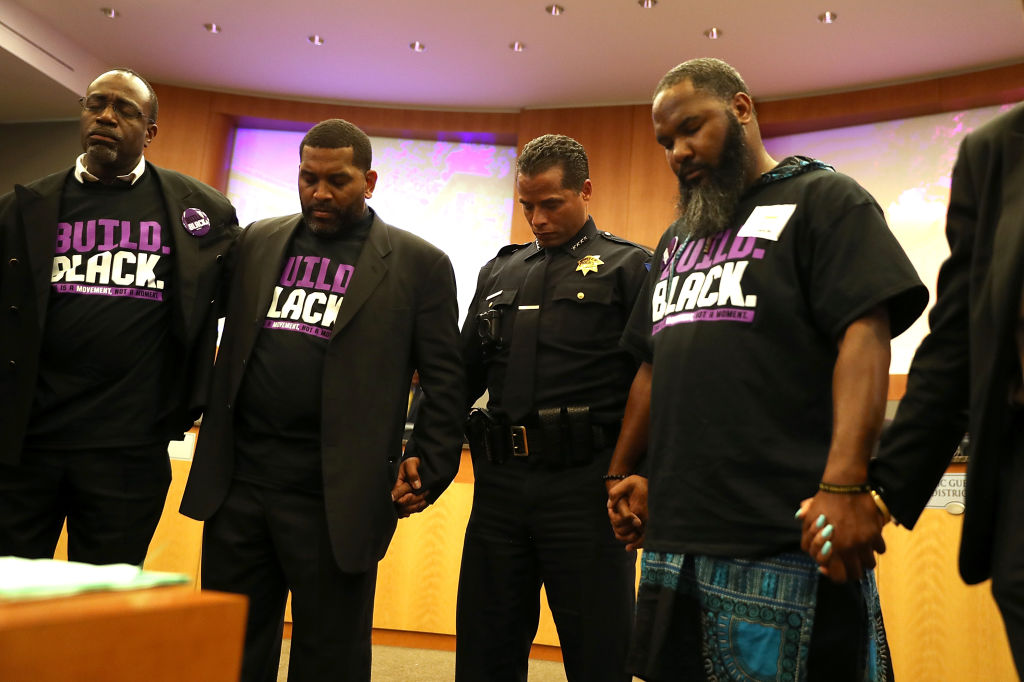
Pictured: Sacramento Police Chief Daniel Hahn | Source: Justin Sullivan / Getty
A major task of many Black police chiefs is mending fences with an outraged Black community — anger that chiefs know first hand — while overseeing the source of the unfair treatment alleged. It’s a position that Alexander, recalling how “law enforcement was used to enforce segregation and Jim Crow laws,” called “a double-edged sword.”
Despite the lopsided demographics policed by departments that are largely non-Black — or perhaps because of it — police chiefs’ devotion to the law enforcement side of the scales of justice is often strong, according to Erin M. Kerrison, an African American professor at the University of California Berkeley and fellow at the Center for Policing Equity who has conducted extensive research on law enforcement and race.
If it came down to it, she cautioned, they would probably choose the blue of their uniforms over the Black of their skin instead of employing some combination of the two.
“Their primary loyalty is to public service,” Kerrison said during a phone call. “They want to improve the day-to-day lives of people in the Black community, and they believe a strong police force is a part of that.”
Kerrison, who has a doctorate in criminology, said that contrary to popular belief, Black police chiefs do understand the outrage Black folks feel from seeing police officers killing unarmed Black men and racial profiling and discrimination. She blamed a flawed criminal justice system for the entrenched racial bias that won’t go away even if Black chiefs are at the helm of police departments.
“They grew up in the community,” she added while blaming a flawed criminal justice system for the entrenched racial bias that hasn’t gone away even with a growing number of Black chiefs at the helm of police departments. “They are also Black fathers who have Black babies.”
Nigel Roberts contributed reporting to this article.









